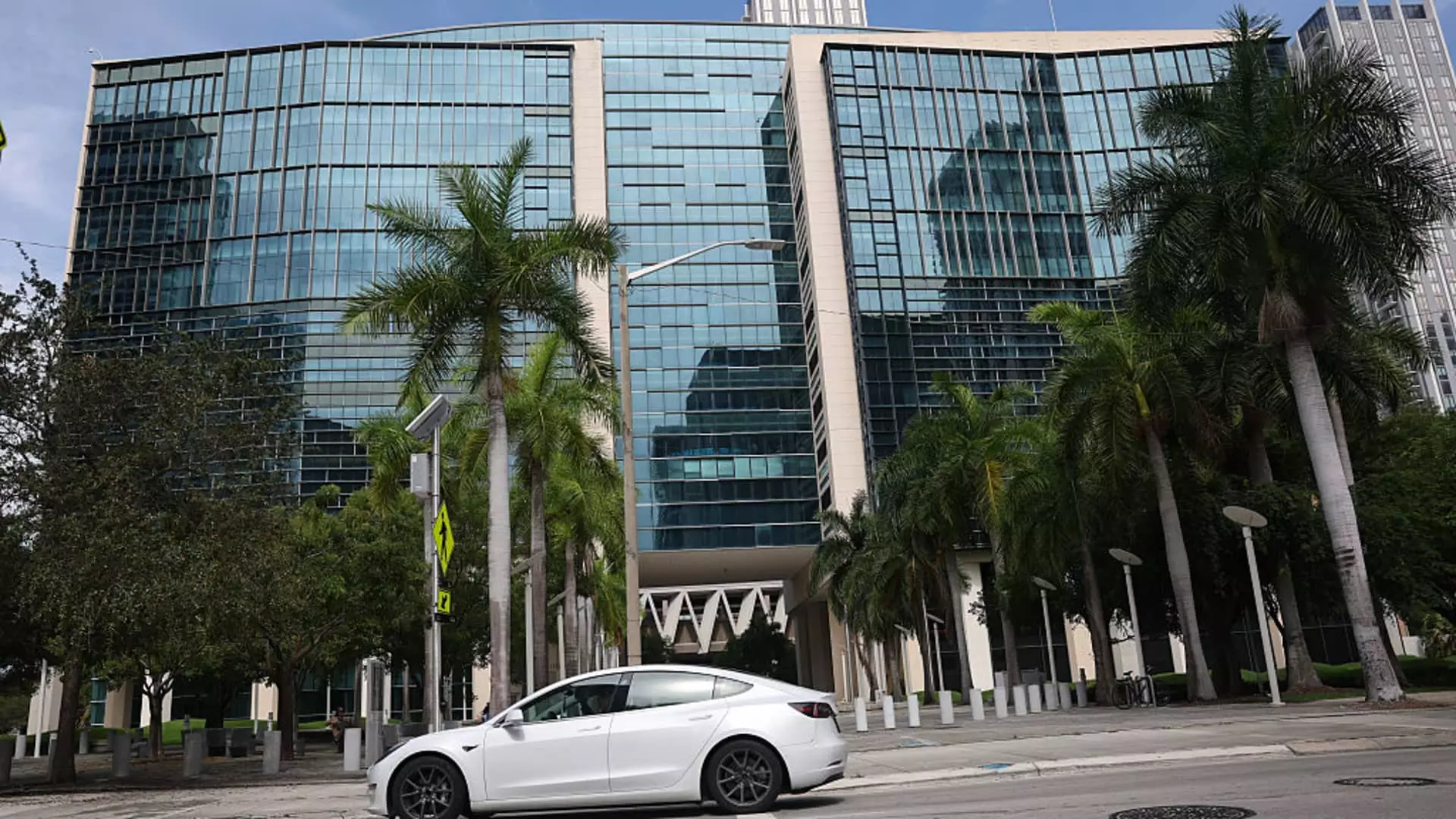Tesla’s Autopilot system has long been shrouded in a combination of awe and unwarranted trust, promoted as a technological marvel promising safer roads. However, recent revelations in a tragic fatal accident expose a harsh reality: the illusion of infallibility often disguises the dangerous flaws lurking beneath sleek marketing and ambitious promises. While the company celebrates technological progress, it seems to overlook a critical question—should we allow autopilot features that foster complacency among drivers, or does this gamble prioritize profits over genuine safety? The 2019 Key Largo crash exemplifies how uncritical reliance on semi-automated systems can lead to devastating outcomes, especially when drivers are encouraged to believe they are in full control.
Tesla markets its Autopilot as an advanced driver-assistance system, but in reality, it lulls users into a false sense of security. The case in Florida—a driver completely misjudging his surroundings and dropping his phone while relying on the vehicle’s autonomous features—dramatizes the peril of overconfidence in such “driver aids.” This incident was not a freak accident but rather a reflection of an unsettling trend where technology is marketed as more reliable than it truly is, encouraging users to abdicate responsibility. The tragic death of a young woman and severe injuries to her partner starkly underscore how automation, without proper safeguards or driver attentiveness, becomes a ticking time bomb.
Corporate Responsibility and the Politics of Misinformation
What’s perhaps more troubling than the crash itself is how Tesla’s narrative has, on occasion, obscured the real risks involved. The company’s leadership, under Elon Musk’s stewardship, has repeatedly touted Autopilot’s capabilities, suggesting it’s near-autonomous and safer than human drivers—a narrative that borders on deception. This behavior aligns with a troubling pattern among tech giants: pushing frontier technology while minimizing transparency about its limitations. Tesla’s alleged false statements and overzealous promotion seem driven more by shareholder optimism than by a genuine concern for road safety.
From a broader political perspective, Tesla’s approach reveals a conflict at the heart of modern liberalism—innovation versus responsibility. While promoting technological progress is admirable, it must be tempered with accountability. Allowing a company to exaggerate safety claims and sell semi-automated features without adequate warnings undermines consumer protection policies and puts the burden of risk squarely on the ordinary driver. The legal proceedings, which could result in hundreds of millions in damages, are a stark reminder that corporate interests sometimes clash with public safety, and regulatory oversight must be more stringent to prevent exploitation of trust.
The Economic and Ethical Dilemmas of Autonomy
Tesla’s push for autonomous driving tech is economically motivated—aiming to dominate a lucrative market and maximize profits by branding vehicles as “self-driving.” However, this pursuit raises pressing ethical questions: Should technological innovation be weaponized as a marketing tool, or should safety come first? The wrongful death lawsuit is more than a legal battle; it’s an indictment of Silicon Valley’s obsession with speed and scale at the expense of thorough testing and responsible deployment.
Moreover, the trial’s arguments hint at a deeper issue: are current legal frameworks adequate to regulate rapidly evolving vehicle automation? The fact that Tesla could typically settle or sideline Autopilot-related litigation into arbitration points to a systemic flaw—consumer safety is often secondary to corporate interest. When regulators and courts begin to scrutinize whether Tesla knew of the risks and intentionally downplayed them, it challenges the industry’s “move fast and break things” mentality. In this context, the pursuit of innovation without comprehensive safety protocols mirrors a reckless gamble, where the stakes involve human lives rather than mere profits.
A Call for Pragmatism Over Promise
This case exemplifies the peril of letting unregulated forward-looking claims overshadow the inherent uncertainties of emerging technologies. As a centrist thinker leaning toward pragmatic liberalism, I see the need for a balanced approach—embracing innovation without blind adherence to optimistic narratives. Tesla’s Autopilot, in its current form, should be treated with skepticism rather than worshipped as an infallible solution. Regulatory agencies, manufacturers, and consumers share a collective responsibility to demand transparency, clarity, and realistic representations of what these systems can and cannot do.
In the end, this tragedy is a wake-up call. It demands that we reassess the standards of automotive safety, scrutinize corporate accountability, and prioritize human life over technological hubris. While progress is essential, it should not come at the expense of wisdom and restraint. As the legal proceedings unfold, they serve as a reminder that the road toward true autonomous vehicles remains fraught with peril—unless we choose to navigate it with caution, integrity, and an unwavering commitment to safety.

